Welcome back! To start I'd like to thank everyone for the kind and positive comments on my original post. In this blog I am looking to try to find what parts of the house might still exist.
Finding the Plunket Organ
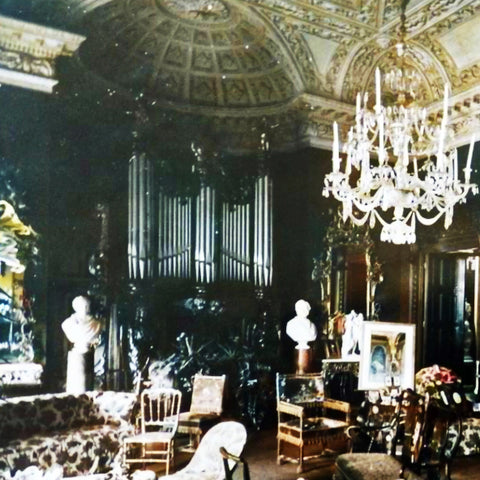
This time out let's start with the Plunket organ. This is the organ that was the centre piece in the Drawing Room. It sits in a semicircular alcove. For those who have been to the park this is the most noticeable feature you can see in the nicely fenced off excavation site.
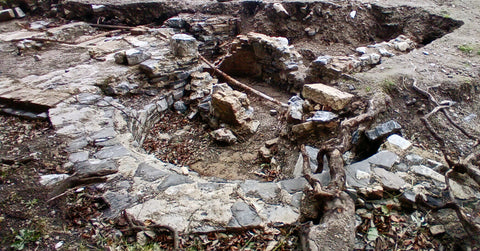
I found out through a friend of Leo Devitt connected to the Irish Architectural Archive that the organ still exists and he believes that it is in Kings Hospital School. Thanks to David for this information and the images below.
I made contact with the Andrew, the archivist in the school who was really helpful. He could confirm that the organ had made it to the school.
He pointed me to a book written by his mother, Lesley Whiteside - Music in the Kings Hospital 1675-2003. I ordered online and headed into the National Library to view the book.
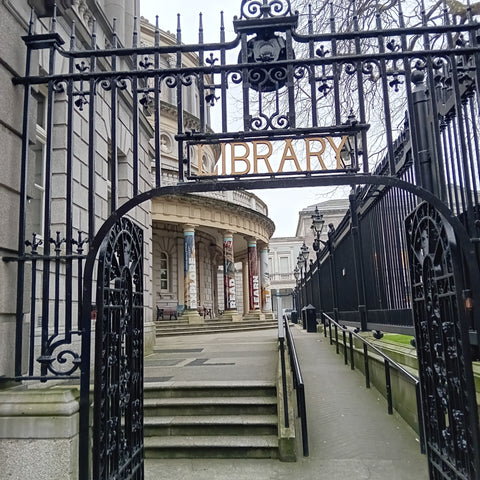
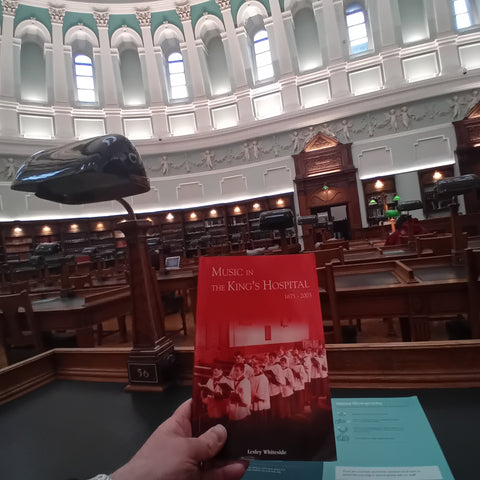
Here is a quote from page 111.
"The replacement was a fine two-manual seventeen-stop organ, donated by Bishop Lord Plunket. It came from the drawing room at St Anne's, Clontarf, the house which he had inherited from his aunt, Lady Ardilaun. Despite much research nothing is known about its origins. It is likely that it was but for a house rather than a church as the baroque case, with its cherubs in of the eighteenth-century French style. While pointing to the eighteenth-century style it is also possible that it was made in the following century by a builder such as Cavaille-Col, as a period reproduction."
In there there is a lovely photograph of the organ being played in the Kings Hospital School chapel.
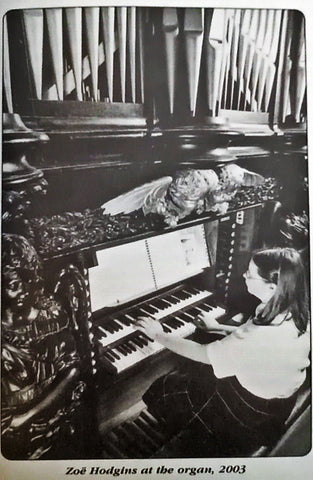
Looking at the schools website and YouTube channel there are a few more images to confirm that that is where the organ ended up.
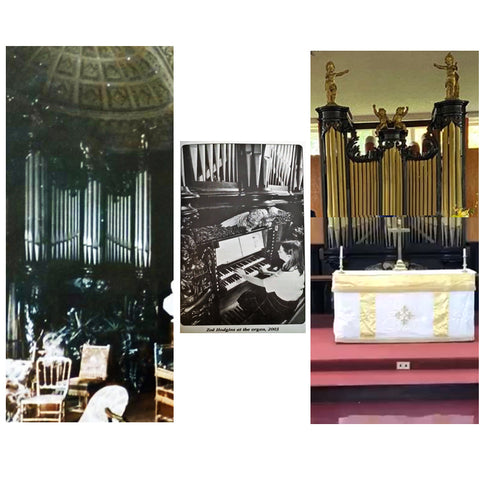
I believe the organ is getting a much needed rework at the moment and isn't in service. However, I have an invite to go out to the school in the coming months and I'll send on a pic when I have one.
Entering the Main Hall
I believe the archaeological team are planning to excavate at the main entrance this year. Here is a look at the columns just past the porch. I wonder will we get to see them again this year? We'll have to wait to see, in the meantime sure why not enjoy this remarkable new view.
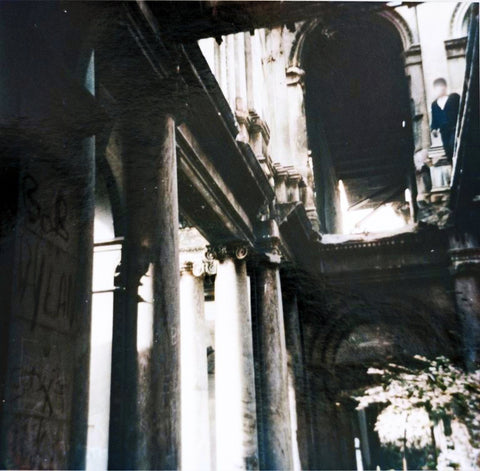
It was taken from this angle looking towards the entrance corridor to the Palm Garden.
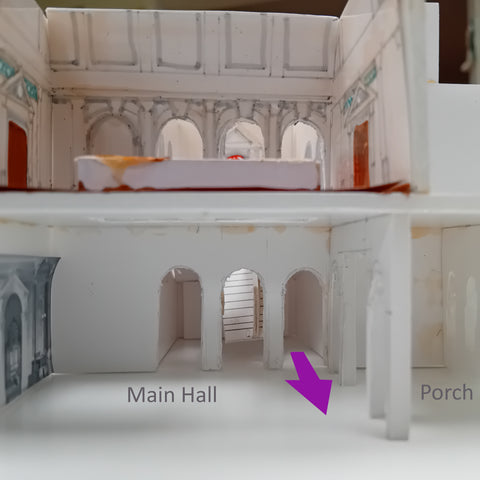
Looking back we can see the pillars from the main hall in their former glory.
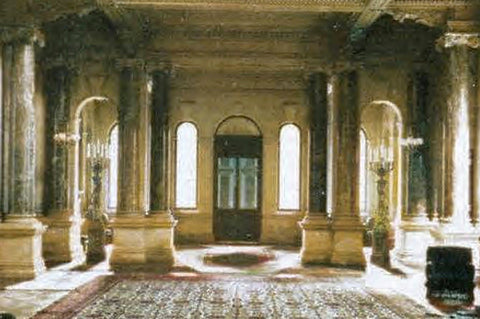
A peek into the upper rooms
We can see in this view from the front a hint of the arches in the main stairwell. in front were two rooms on the right named the Peacock Dressing Room and the Peacock Bedroom. The central room was the library and to the left upstairs was the Front Bedroom.
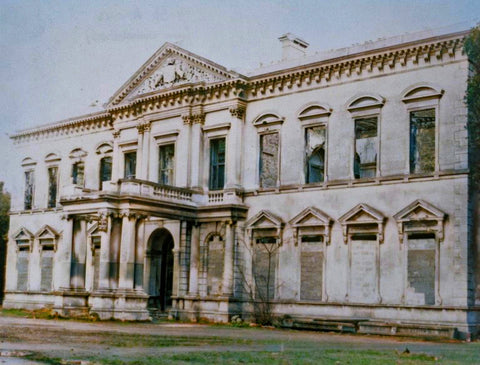
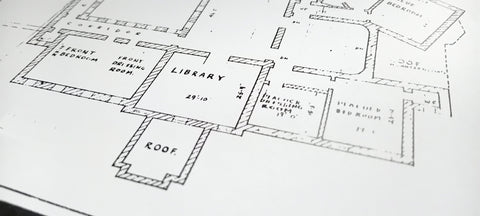
The main staircase window
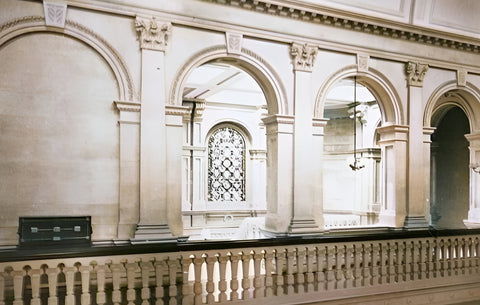
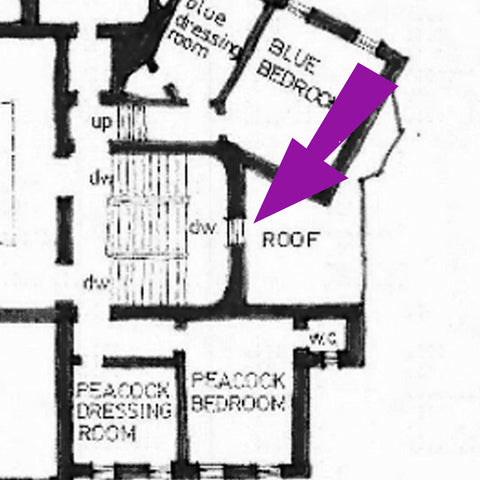

Here we can see it from the outside during demolition with corrugated iron covering it from the outside. Below is the statue room arches.
At the excavation in this very point today is the iron window arch.
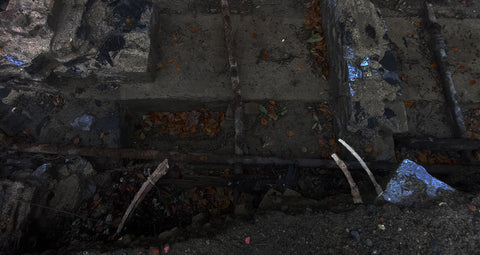
Finding more on the seafront
From the causeway to Black Banks there are still large chunks of stonework from the mansion. It is indeed true that a lot of it was taken down and dumped here.
Here are some interesting ones I have come across. It is worth noting that these stones are pretty ginormous :)
A stone column.
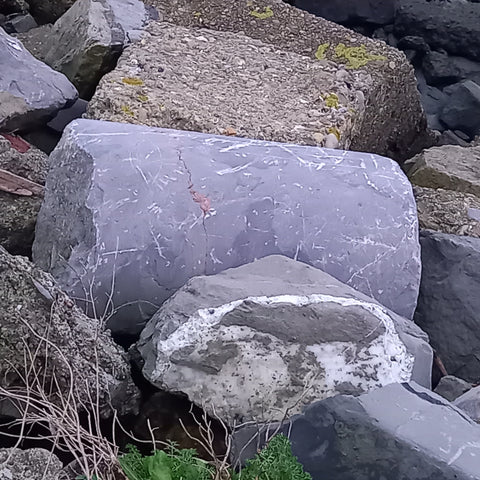
A granite column.
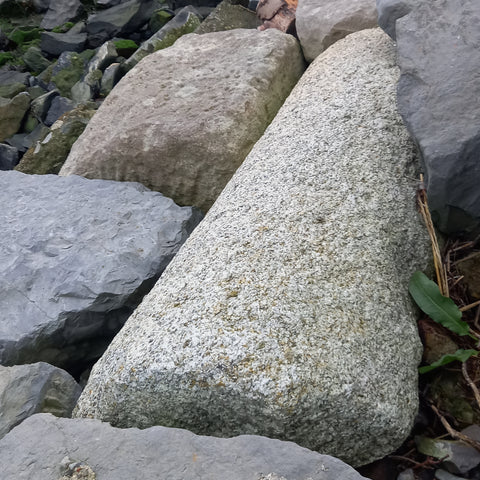
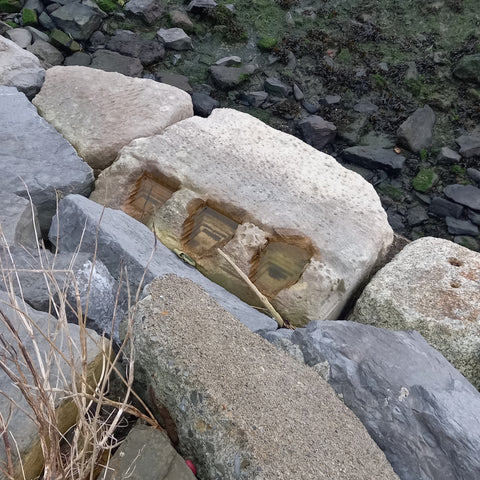
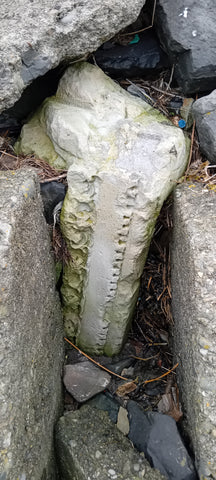
A chimney stack.
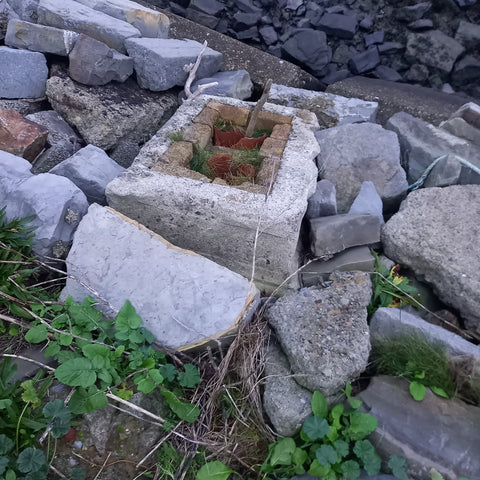
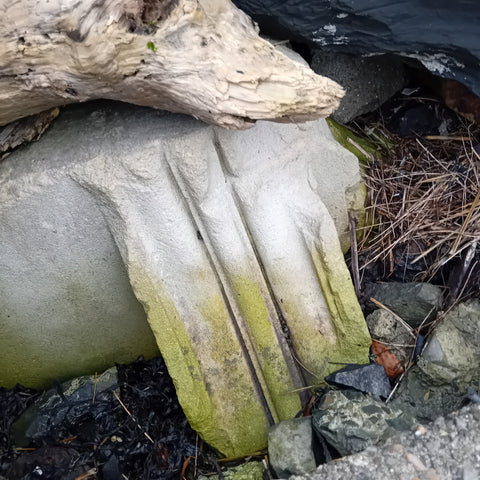
A gatepost, I think.
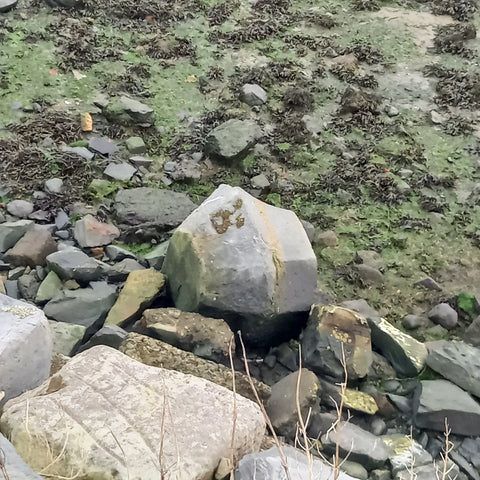
Let's play it out with a short video
Let's finish with some more cool AI. This time I have used Gen-2 by Runway to generate some small clips using the photos I have. Wow! I loved looking at the images, but this really makes it seem that we can be there in the past.
That's it for now folks... more again in the near future and I may actually get to the features I mentioned in my last blog :)

What ever happened to the beautiful gates that were on the Clontarf road?
A very fine mahogany wall regulator clock, that almost certainly was specially made for St. Anne’s mansion, is on display in the Irish Museum of Time in Waterford.
It would be interesting if it is visible in any interior photographs, or mentioned in an inventory. It is apparently included in the auction catalogue of the house contents.
Really good